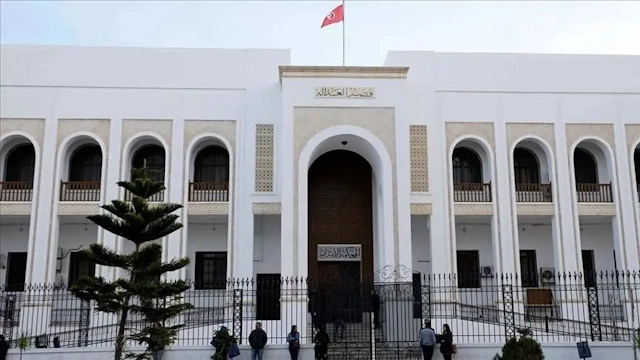The criminal chamber specializing in examining terrorism cases at the Court of First Instance in Tunis decided, on Monday, November 25, 2024, to postpone consideration of the case of “networks transporting terrorists to conflict zones” and to reject the request to release the detainees in the case, including the former Prime Minister, former Minister of the Interior, and Vice President of the Ennahda Movement, Ali Laarayedh.
The case relates to accusations of inciting and facilitating the travel of hundreds of Tunisians to fight in the ranks of armed terrorist organizations, especially in Syria and Iraq. The list of defendants includes a former advisor to the Ministry of the Interior and other government officials, in addition to people suspected of belonging to terrorist groups.
The ruling on the case was postponed at the request of the defendants’ defense team to submit new requests.
Background of the case
Since President Kais Saied took power, the Islamist party Ennahda movement has been accused of facilitating the travel of extremists to conflict zones during its time in power, accusations which the movement has denied, describing them as an attempt to distort its image and cover up political and economic crises.
In a previous statement, the Ennahda movement considered that “the systematic targeting of Ali Laarayedh is an attempt to settle political scores and cover up the failure of the recent legislative elections, which were boycotted by more than 90% of voters.” It demanded his immediate release.
“Freedom for Tunisia” Observatory Comment
The “Freedom for Tunisia” Observatory believes that the continued detention of political figures in cases with political and judicial dimensions raises questions about the independence of the judiciary and respect for the rights of the accused. The Observatory expresses its concern about the use of terrorism files as a means to settle political scores in a climate characterized by declining freedoms and increasing restrictions on political activity.
The Observatory calls for the need to respect the rights of defense and ensure a fair trial, while avoiding any political use of the judiciary that may undermine confidence in democratic institutions and exacerbate the crisis of freedoms in Tunisia.





